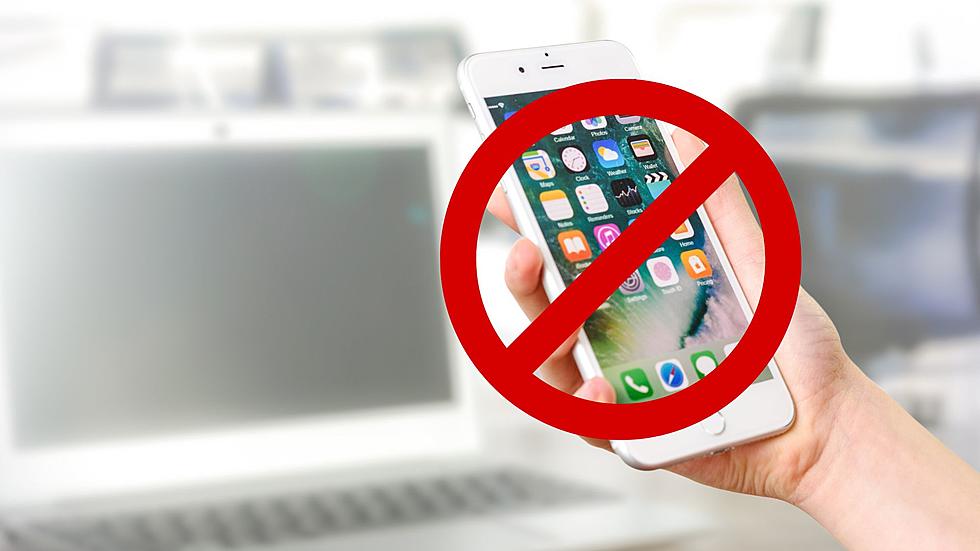![Kids and the Future of Technology – Teens and Technology [SERIES]](http://townsquare.media/site/385/files/2012/08/computer.jpg?w=980&q=75)
Kids and the Future of Technology – Teens and Technology [SERIES]
This is the fifth and final segment in a week-long, five-part series on technology and our kids. David Matthau talks to teens, their parents a child psychologist, a sociologist and an education expert to get different perspectives on the positive and negative aspects of technology, and how it's affecting the way our children think and behave.
Most Jersey teens have embraced technology - and are hyper-focused on their cell phones, and texting to communicate with friends and family - but how will high-tech be impacting them in 10 or 15 years?
Fourteen year old Samantha says "it's just going to keep improving and improving and improving…I think one day our lives will be completely run by technology - I think eventually we will have these little screens - like when we walk through the door, that gets us everything we need, like if you need a drink, maybe like something will just come at you, or whatever. Eventually we won't even need to be getting up - like from the couch or from the sofa- or whatever - I just think everything will be done for us.
Central Jersey teen Tristen says "I think they're going to be coming out with like hologram screens, and I think in the future at one point there's going to be like a TV kind of, and you put on something, and then you can go into it - and it's virtual reality and everything - and you could feel the pain and emotions and everything, and
it's pretty much you own new world, and you could be in that world instead of this world and everybody's going want to be in that world - so it's going to be completely different and I think it's just going to take over the world."
If that doesn't happen he says "they're going to put chips inside your brain- where you can see everything, and you know you can go on the internet anywhere or send a text message…technology really helps in my life… you can carry on a conversation on the text message for hours and hours and hours, and you always have something else to say."
Child psychologist Dr. Steven Tobias says "we need to worry - we need to be very scared if that's what the future is going to be."
He says "kids don't realize the consequences of their actions, they don't realize what they're doing…texting leads to misunderstandings , it leads to a lack of communication - I really do not think texting facilitates communication at all…teenagers have a very limited life experience - they don't understand the value of real communication…being in touch with someone involves touching - the more senses that are involved in communication, the more gratifying that emotional communication is…if you want to really connect with somebody - what do you do - you give them a hug - you can't do that through electronic media - I think that teens have no idea of what they're going to be missing if this is their future."
Rutgers sociology professor Dr. Deborah Carr agrees.
She says texting is "a very quick communication that doesn't engage emotion, it doesn't allow people to really work out their thoughts or reason out their thoughts…it doesn't allow people to delve into deeper, meaningful communication, to work out conflict, to work out ambiguities."
She says the vision of the future - where micro-chips are implanted in our brains to allow for quick texting and internet searches - may sound exciting to young people, but it doesn't really "cut to the chase of what communication should be -which is kind of sharing ones real opinions and values and emotions with a person who fully understands them…I do suspect that technology leads to more alone time, rather than together time, it does lead to more sedentary behavior...there is a downside if people use technology as a substitute for, rather than a supplement to standard face to face communication."
RELATED:
- Part Four: How is Technology Affecting Your Kids in School?
- Part Three: NJ Parents Deal with Tech-Savy Kids
- Part Two: Experts Say Too Much Texting is Dangerous
- Part One: Kids Prefer Texting to Talking
More From New Jersey 101.5 FM







![Grilling Gone Wrong – Top 5 BBQ Fails [NSFW- Language]](http://townsquare.media/site/385/files/2012/05/BBQ-Fail1.png?w=980&q=75)

